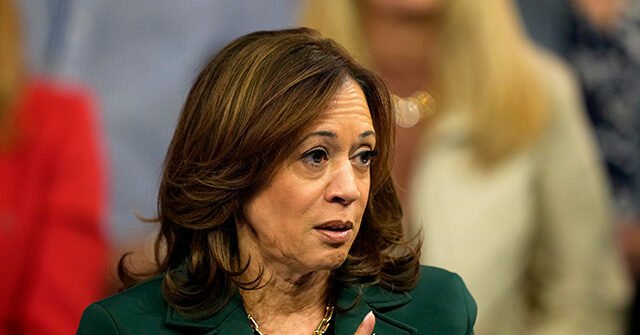Former President Donald Trump’s campaign has initiated a complaint with the Federal Election Commission (FEC) against the UK’s Labour Party, alleging “blatant foreign interference” in the upcoming U.S. elections. The complaint centers around accusations that Labour Party staff members have been dispatched to the United States to actively campaign for Vice President Kamala Harris in battleground states. The assertion is that these activities can be classified as illegal contributions from a foreign entity, a violation of U.S. election laws. The complaint cites media reports which detail these contacts between the Labour Party and Harris’s campaign, suggesting a concerning intertwining of foreign political actions and U.S. electoral processes.
The specifics of the complaint refer to reports indicating that around 100 British activists, associated with leftist groups, are being financially supported to campaign for Harris in various critical states. The complaint posits that this significant level of foreign involvement raises legitimate legal issues, particularly concerning the implications of foreign nationals contributing to or participating in U.S. election campaigns. This case reflects ongoing concerns about foreign influence in American politics and the boundaries set by law regarding foreign entities’ participation in domestic elections.
A particularly striking piece of evidence brought forth in the complaint is a social media post by Sofia Patel, Director of Operations for the Labour Party. In her now-deleted post, Patel announced that nearly 100 Labour staffers were preparing to head to the U.S. to campaign for Harris in pivotal states like North Carolina, Nevada, Pennsylvania, and Virginia. She explicitly offered assistance with accommodation for the activists. Patel’s invitation included specific details about travel logistics, which have drawn particular scrutiny, as they appear to facilitate organized foreign political campaigning in the U.S.—a notion that contradicts established electoral guidelines.
The concern is exacerbated by Patel’s past involvement in U.S. campaigns, as reported by NBC15 News, which noted that she participated in supporting Hillary Clinton’s 2016 campaign. This context of previously coordinated efforts further emphasizes the ongoing ties between foreign political entities and U.S. electoral processes. The Labour Party’s recent activities and Patel’s outreach have not only raised eyebrows but have also intensified the critique of foreign participation in matters traditionally reserved for American citizens and parties, posing complications for the Harris campaign as they navigate the legality and optics of such support.
Adding to the gravity of the situation, reports from the Washington Post highlighted that senior strategists connected with the Labour Party have been actively advising the Harris campaign on how to reconnect with disenchanted voters while maintaining a left-leaning political stance. This strategic collaboration serves as another layer of concern, implying a direct foreign influence on the campaign tactics employed by Harris, which could undermine the integrity of the election process. Such actions have sparked debates about the ethical implications of foreign intervention and its potential effects on democratic practices in the U.S.
The development of this complaint underscores a crucial tension in political campaigning, particularly regarding the legal frameworks that guide participation and contributions in U.S. elections. With both the Trump campaign and various media outlets shining a spotlight on these alleged foreign interferences, the implications extend beyond the immediate controversy of campaign support. It raises broader questions about how political entities operate across borders and the extent to which foreign influence can shape domestic policy and elections. As the situation unfolds, it presents a critical moment for the examination of campaign finance laws, political activism, and the integrity of democratic practices—issues that resonate deeply within the current American political landscape.

